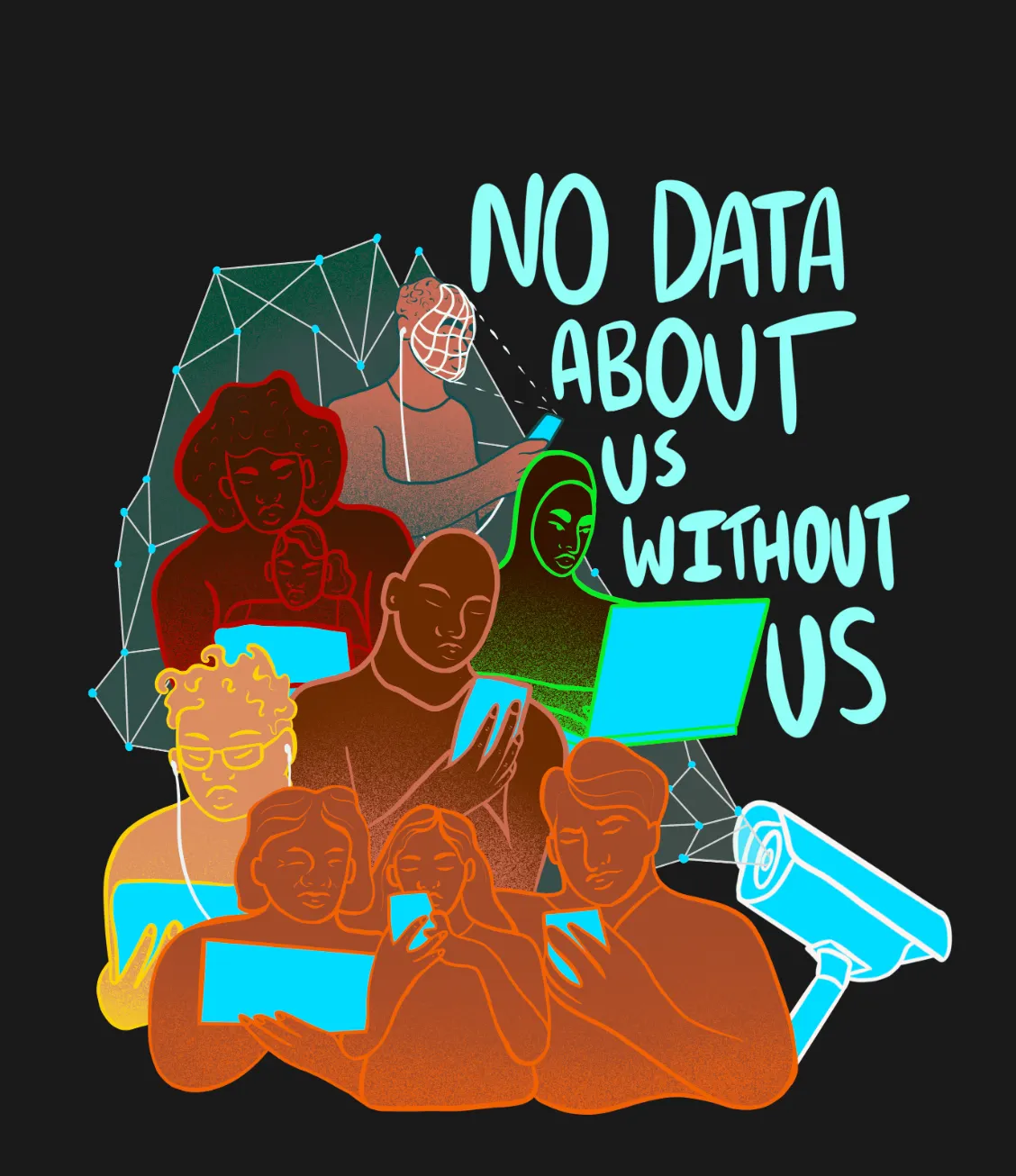Climate Intelligence and Adaptation: Advancement through the lens of “Social Contracts”
Participant in Edgelands' Fellowship program, Sophia Sennett explores in this blog post the relations between climate change, climate intelligence and social contract.

Photo: Sophia Sennett
Climate change impact is accelerating. Data science and surveillance are also accelerating. Together these trends in parallel create a new context for social contracts. The concept of social contracts describes the inherent relationship between individuals and a polity. Climate change poses a new era of security challenges as interrelated natural hazards intensify and disrupt the status quo across society.
Every entity now (or very soon) is asking: How does climate change impact my business; and how should I adapt? The first step in an entire lifecycle of climate adaptation is capturing data, analysis, and setting strategy. That is, describing what we can expect to face in the current and future states of the climate crisis.
Acceleration of Climate Change
What makes climate change a fascinating global challenge is the compounding amplification of greenhouse gas emissions. Higher greenhouse gas emissions have a cascading impact leading to, in turn, an increased rate of emissions released into the atmosphere. For instance, warming temperatures in the Arctic are thawing permafrost and releasing trapped methane that, in turn, leads to global warming which amplifies the negative impact of the global climate crisis.
Climate change is an out-of-control series of cause-and-effects that impact every ecological process and human coexistence with it.
Humanity’s efforts to minimize and mitigate greenhouse gas emissions have had minimal impact on reducing the long-term negative impact of climate change. As a result, adaptation (in addition to mitigation) is an increasing focus as now indicated by a boom in the adaptation industry providing services, products, and strategies to help entities adapt to a changing world. According to the IPCC (2007), as an adjustment of human or natural processes as a reaction to adverse and to-be expected effects of climate change. Adaptation can range from reactive improvisation to proactive strategic planning. Entities all over the world are increasing their investments in climate adaptation planning, at all levels and sectors, including governments, corporations, and individuals:
- State-scale: Around 79 percent of countries have adopted at least one national-level adaptation planning instrument.[1]
- Corporate-scale: Over 470 or 33 percent of participating companies disclosed a process for identifying and assessing climate-related risks under the Task Force on Climate-Related Financial Disclosures (TCFD).[2]
- Individual-scale: 47% of Americans believe that climate change will harm them personally.[3]
The adaptation industry coincides with a paradigm shift: that our past will not always inform our future because we are planning for a game where the rules and field are constantly changing and changing faster than we can detect changes. Instead of drawing from records and best practices from the past exclusively, we need to rely on newer models, such as those using projected data.
Acceleration of Climate Intelligence
At large, the amount of data collected and stored is doubling every two years.[4] With respect to climate change, a domain called climate intelligence is developing as an infrastructure and network of emergence technologies that better survey and model Earth observations.

New accuracy of global climate models (GCMs) is possible to represent earth systems and generate long-term projections. And Digital Twins are being created in order to model both ecological and built environments.[5]
There is an intersection of non-linear technology advancements and cost contractions that enable a growing climate intelligence infrastructure:
- machine learning (ML)
- artificial intelligence (AI)
- deep learning (DL)
- big data capacity
- computer vision
- satellite data
- Internet of Things (IoT)
- climate sensors: hard sensing + soft sensing
- simulation technology
- High-Performance Computing (HPC)
Thus the AI/ML supported climate intelligence is advancing at a time and becoming increasingly accessible at a moment in the collective human experience where climate disasters are already wreaking havoc and inflicting new thresholds of human suffering. We are living in a decade with five times the number of weather-related disasters compared to fifty years ago.[6] And it’s only going to get more intense from here.
Asymmetric Access to Earth Observation
This dynamic reminds me of drawing. We are each drawing a picture of the future. Some are sketches that look like someone drew with a ballpoint pen on a restaurant napkin. And then there is a photorealistic image rendered with precision and details - that’s the differentiations climate intelligence brings.


There is a multiplicity of perceptions. To see potential successful and less-successful futures is the power that climate intelligence offers. Thus, access and analysis of climate data then become a competitive advantage and applicable to the discourse on social contracts. And the implications if the images are not collectively viewed in a “gallery”. What are the implications to the social contract if the data are not shared?
Most aware actors know that climate change will impact how they do and what they do. What is unequal is the level of insight. We are living in different futures of what has been described as a collective climate challenge and what has been described as an unequal stake in a shared system.[7]
What’s At Stake for Social Contracts?
Through the lens of social contracts, climate intelligence poses a range of questions. As a recall, a definition of a social contract is citizen consent to the authorities and the reciprocal duty of social institutions to uphold the equal rights of all.[8] Social contracts, in this definition, are predicated on a shared need for collective action and solutions to collective action issues.
So then, does climate intelligence create an unequal stake in a collective system? Incentives are propelling a newly developed adaptation industry
Climate intelligence is a powerful tool for transformative adaptation primarily being developed for use at an enterprise scale. The incentives for funding and stewarding climate intelligence create competitive advantages including:
- Informing climate risk modeling
- Capital allocation / Optimizing scarce resources
- Informing expense trade-offs
- Avoiding maladaptation
- Building trust with constituents or customers
- Risk management
Climate intelligence, on the other hand, is not part of the SEC draft rule as companies are not required to disclose their methodology, data sources, assumptions and other key parameters used to assess climate-related risks.[9] While risks would be disclosed, the process to identify climate risks will avoid public disclosure.
This example is to point out how the availability and accessibility of climate data is an uneven and opaque landscape. At a time with a growing public perception of the impacts of climate change, climate intelligence will accelerate and scale up climate adaptation solutions and strategies.[10]
Ultimately, if data and decisions continue to be created within imperfect and proprietary “moats and walls” of competitive advantage, climate adaptation will suffer the same fate as climate mitigation. Transparency of climate data is critical for the social contracts of climate change as a collective security challenge.
Enhancing equity and access to data starts with incentivizing coordination across climate intelligence. The network of implicit and explicit social contracts can be strengthened to ensure that a complete climate intelligence ecosystem is greater than the sum of its parts.

Notes
[1] United Nations Environmental Programme. (2021). Adaptation Gap Report 2021: The Gathering Storm. https://www.unep.org/resources/adaptation-gap-report-2021#:~:text=The Adaptation Gap Report (AGR,adaptation%20finance%20gap%20is%20widening.
[2] Task Force on Climate-Related Financial Disclosures. (2022, October). 2022 Status Report. chrome-extension://efaidnbmnnnibpcajpcglclefindmkaj/https://assets.bbhub.io/company/sites/60/2021/10/FINAL-2017-TCFD-Report.pdf
[3] Yale Program on Climate Change Communication. (2022, February 23). Yale Climate Opinion Maps 2021. https://climatecommunication.yale.edu/visualizations-data/ycom-us/
[4] GUO H.-D. et al. / Advances in Climate Change Research 6 (2015) 108e117 109
[5]Caulfield, B. (2022, November 17). Lockheed Martin, NVIDIA to Help US Speed Climate Data to Researchers. NVIDIA. https://blogs.nvidia.com/blog/2022/11/17/climate-data-speed/
[6] World Meteorological Organization. (2021). WMO Atlas of Mortality and Economic Losses from Weather, Climate and Water Extremes (1970–2019) (WMO-No. 1267). https://library.wmo.int/index.php?lvl=notice_display&id=21930#.Y8gyN-zMJJX.
[7] Al-Rodhan, N. (2018, June 11). The Social Contract 2.0: Big Data and the Need to Guarantee Privacy and Civil Liberties. Big Data | Blockchain | Blockchain | Philosophy | Sociology. https://www.bbvaopenmind.com/en/humanities/beliefs/the-social-contract-2-0-big-data-and-the-need-to-guarantee-privacy-and-civil-liberties/
[8] Campbell, T. (2010). Justice (3rd ed.). Basingstoke, England: Palgrave Macmillan.
[9] U.S. Securities and Exchange Commission (2022, March 21). SEC Proposes Rules to Enhance and Standardize Climate-Related Disclosures for Investors. Press Releases - U.S. Securities and Exchange Commission. https://www.sec.gov/news/press-release/2022-46
[10] Pew Research Center (2021, August 14). In Response to Climate Change, Citizens in Advanced Economies Are Willing To Alter How They Live and Work. Environment & Climate. https://www.pewresearch.org/global/2021/09/14/in-response-to-climate-change-citizens-in-advanced-economies-are-willing-to-alter-how-they-live-and-work/



